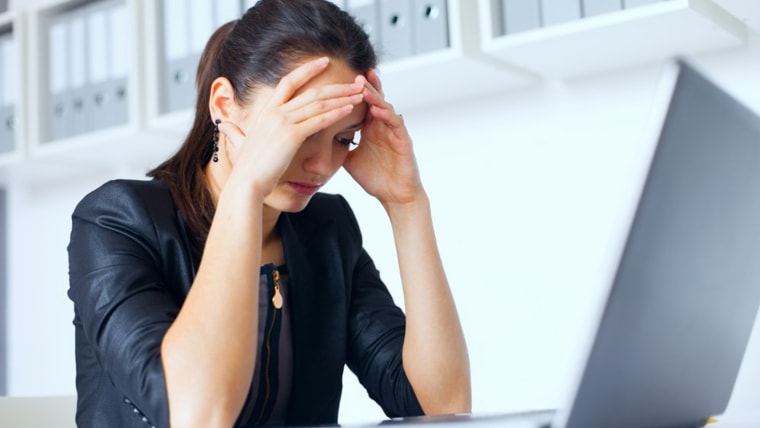In unpleasant situations, not knowing how things will turn out is more stressful than realizing the worst case scenario is inevitable, a new study suggests.
An example? “Knowing that your plane is cancelled versus being unsure how long it would be delayed and whether it would be cancelled,” says the study’s lead author Archy O. de Berker, a researcher at the institute of neurology at University College London.

Uncertainty causes us more stress, says de Berker.
To conduct the study, de Berker and his colleagues devised an experiment in which 45 volunteers played a computer game, according to the report published in Nature Communications. The game asked volunteers to turn over rocks onscreen. If the rock had a snake under it, volunteers received a rather painful electric shock. Sometimes, it was possible to guess with reasonable certainty whether a rock would have a snake under it. But other times, there were no clues.
When there was a 50-50 chance that a snake would be under a rock, volunteers were the most stressed — they sweated more and their pupils got even wider. The least stressful times occurred when there was either a 0 percent or a 100 percent chance of a snake — and a shock.
De Berker and his colleagues aren’t sure why a 50-50 chance of a bad outcome is more stressful than being sure a bad outcome is upon us.
“The fact that uncertainty is more stressful than certainty probably tells us something about the function of stress responses,” de Berker says. “Uncertainty is difficult for the brain, because it makes it hard to figure out what to do — what decisions to make. I suspect stress — both the arousal component and the unpleasantness of it — helps us deal with uncertain situations, possibly by making us more alert, and also incentivize us to avoid them.”
Related: Workplace stress as bad as smoking
So, how should we cope if we can't avoid uncertain situations?
“Practices such as meditation have been shown to reduce stress levels — nobody knows quite what the mechanism is yet, but it may well relate to how your stress system responds to variables such as uncertainty,” de Berker says.
The study findings jibe with what we already knew, says Dr. Robert Hudak, an associate professor of psychiatry at the University of Pittsburgh.
“When Pavlov did his experiments with dogs, he found that the best way to reinforce their drooling in response to the sound of a bell was to only intermittently provide them with food when the bell rang,” Hudak says. “And I think it works that way with anxiety. Anticipation is such a big problem that we have a name for this: anticipatory anxiety.”
Hudak sees this kind of thing playing out all around him.
“Don’t we see it in day to day life?” he asks. “How often do you run into someone who is not feeling well and doesn’t want to go to the doctor because they are afraid of bad news? Cancer patients are not afraid of going to the doctor. But those who are really afraid of cancer are never motivated to get screenings.”
Relaxation techniques can help when uncertainty provokes anxiety, Hudak says.
Related: 17 exceptionally easy ways to relax
Another approach that might help is mindfulness, he says. “It teaches you to be in the moment and not to worry about future anxiety."